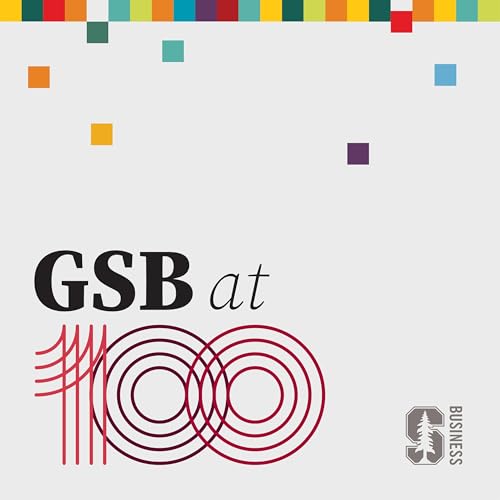This week on If/Then, we’re sharing an episode of View From The Top: The Podcast, an audio series featuring leaders from around the world in conversation with MBA students. Recorded live at the CEMEX Auditorium at Stanford Graduate School of Business, episodes feature insights on effective leadership, the values that guide it, and lessons learned along the way.
Lisa Su, the chair and CEO of Advanced Micro Devices (AMD), leads one of the world’s most influential technology companies, a pioneer in high-performance computing and designer of chips that power everything from cellphones to supercomputers.
Su joins Michael Liu, MBA ’25, to talk about what it takes to stay on the cutting edge of technology, the tremendous potential of artificial intelligence, and why her superpower may be her commitment to learning.
“Careers are very much by chance,” Su says. “The nice thing about my early career is I was lucky enough to have bosses who asked me all the time, ‘What do you want to be when you grow up?’ And I was like, ‘I don't know. Let me think about [it]...what I like to believe is the ability to learn at each step was what really helped me in my career.”
This conversation was recorded on February 24, 2025.
More Resources:
• Lisa Su
• GSB Insights
• View From The Top
If/Then is a podcast from Stanford Graduate School of Business that examines research findings that can help us navigate the complex issues we face in business, leadership, and society.
Chapters:
(00:00:00) Introduction
Kevin Cool introduces a summer spotlight on other podcasts, featuring View from the Top.
(00:00:59) Meet Lisa Su
Michael Liu introduces Lisa Su, AMD CEO, and highlights her career transformation.
(00:04:13) Growing Up & MIT Years
Lisa reflects on her immigrant upbringing and her journey through three degrees at MIT.
(00:05:43) Discovering Semiconductors
A part-time lab job at MIT ignites Lisa’s passion for chip technology.
(00:07:21) From Engineer to Leader
Lisa describes her transition from technical work to managing people and projects.
(00:11:19) Tackling Hard Problems
How curiosity and teamwork help Lisa embrace high-stakes technical challenges.
(00:13:40) Betting on Talent
Lisa recounts moments when she was given a chance—and how she now pays that forward.
(00:17:03) Becoming CEO at AMD
What brought Lisa to AMD and the unexpected call to lead the company.
(00:21:51) Strategy in a Turnaround
How AMD focused on high-performance computing and long-term bets.
(00:25:41) Cultural Shift at AMD
Lisa outlines how AMD’s culture became collaborative, ambitious, and learning-driven.
(00:27:19) AI & Global Tech Politics
The complex intersection of AI innovation and geopolitical regulation.
(00:32:37) Open vs. Closed AI Platforms
AMD’s open-source AI approach with NVIDIA’s more vertical model.
(00:38:54) Future Vision & Final Reflections
Lisa offers advice to MBAs and shares what she wants her legacy at AMD to be.
See Privacy Policy at https://art19.com/privacy and California Privacy Notice at https://art19.com/privacy#do-not-sell-my-info.
 2025/12/2229 分
2025/12/2229 分 2025/11/2629 分
2025/11/2629 分 2025/11/1225 分
2025/11/1225 分 27 分
27 分 2025/09/2421 分
2025/09/2421 分 56 分
56 分 16 分
16 分 34 分
34 分
